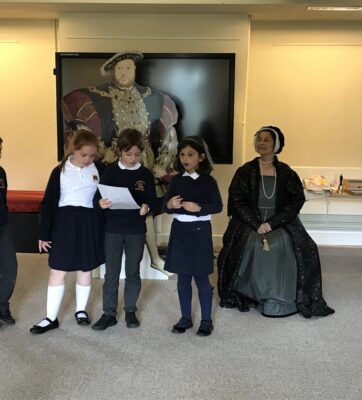 Intent
Intent
Our aim in history at St. Joseph’s is to plan for outstanding attainment and progress for all our pupils, by covering all the National Curriculum History objectives through our Learning Challenge curriculum plan, where every child is given the opportunity to learn about the past.
Learning is based on historical enquiry, where children are encouraged to think critically and to develop their perspective and judgement through engaging and diverse activities and to aspire to reach a greater depth of knowledge, understanding and higher-level thinking skills.
History lessons at St. Joseph’s intend to equip our pupils to understand the complexity of people’s lives, the process of change, the diversity of societies and relationships between different groups, as well as their own identity and the challenges of their time to become architects of the future.
Implementation
History at St. Joseph’s is carefully planned to give children opportunities to work as historians through real life experiences, working with artefacts, visits to museums and places of historical significance and opportunities such as Black History Month.
Pupils’ awareness of the past and passing of time is supported through development of key vocabulary linked to the people and events studied within a chronological framework and linked to life in different historical periods.
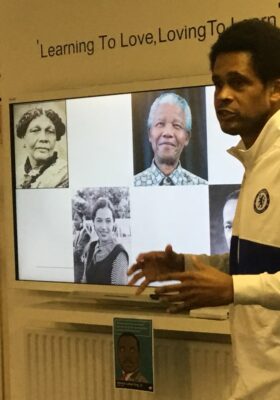 EYFS: In our Little Joe’s early years setting, history is taught within topics through the ‘Understanding the World’ EYFS Development Matters Framework. The topics taught in EYFS have been carefully selected to ensure that the necessary historical skills are being taught and built upon throughout the early years. In Early Years the curriculum is concept-based and carefully planned to provide all children with a wider understanding of the world around them.
EYFS: In our Little Joe’s early years setting, history is taught within topics through the ‘Understanding the World’ EYFS Development Matters Framework. The topics taught in EYFS have been carefully selected to ensure that the necessary historical skills are being taught and built upon throughout the early years. In Early Years the curriculum is concept-based and carefully planned to provide all children with a wider understanding of the world around them.
Children begin to make sense of their own family history and use their own life experiences to build a sense of the past and present. Timelines are introduced so all children gain an understanding of the passing of time and that events are relevant to them can be ordered chronologically. Children also understand the past through settings, characters and events encountered in books as well as having varied opportunities to explore and role play different roles in society.
KS1 & KS2: History is taught in 6 week block of lessons across three half term geography topics per year. Progression of historical skills is ensured through careful mapping of Units of Work chosen from PlanBee (an online, subscription-based history resource for primary schools) with maximum opportunities for cross curricular learning where possible.
The scheme of work is aligned with the National Curriculum requirements for history and ensures progressive, comprehensive curriculum coverage across all year groups.
In Key stage 1, pupils explore history within her own their living memory and begin to explore significant periods, which are further explored in Key stage 2, where pupils develop chronologically secure knowledge of British, local and worldwide knowledge.
They are taught to construct informed responses that involve thoughtful selection and organisation of relevant historical information. Pupils are taught to understand how our knowledge of the past is constructed from a range of sources. Teachers give opportunities for pupils to gain greater depth through exploring the complexities of specific aspects of the content.
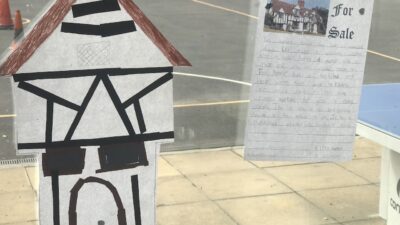 Impact
Impact
All pupils have opportunities to contribute to History lessons taught with reflective time built in to strengthen their understanding of how history and significant people have shaped our community, nation and the world we live in and how this prepares them for their own future in the community and our world, with a focus on inclusion and equality.
Through observations, pupil interviews and book scrutinies, it is evident that at St. Joseph’s School, the teaching of history effectively develops children’s historical knowledge and skills.
Next step marking enables pupils to reflect on their work to make further progress. Teachers are well supported through regular CPD sessions arranged in this subject so these are taught enthusiastically to capture the children’s attention.
Data shows a good level of attainment across the whole school and all teachers are able to accurately assess children’s progress against end of year expectations.
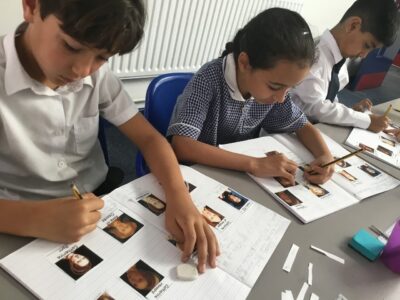
Curriculum Overviews
